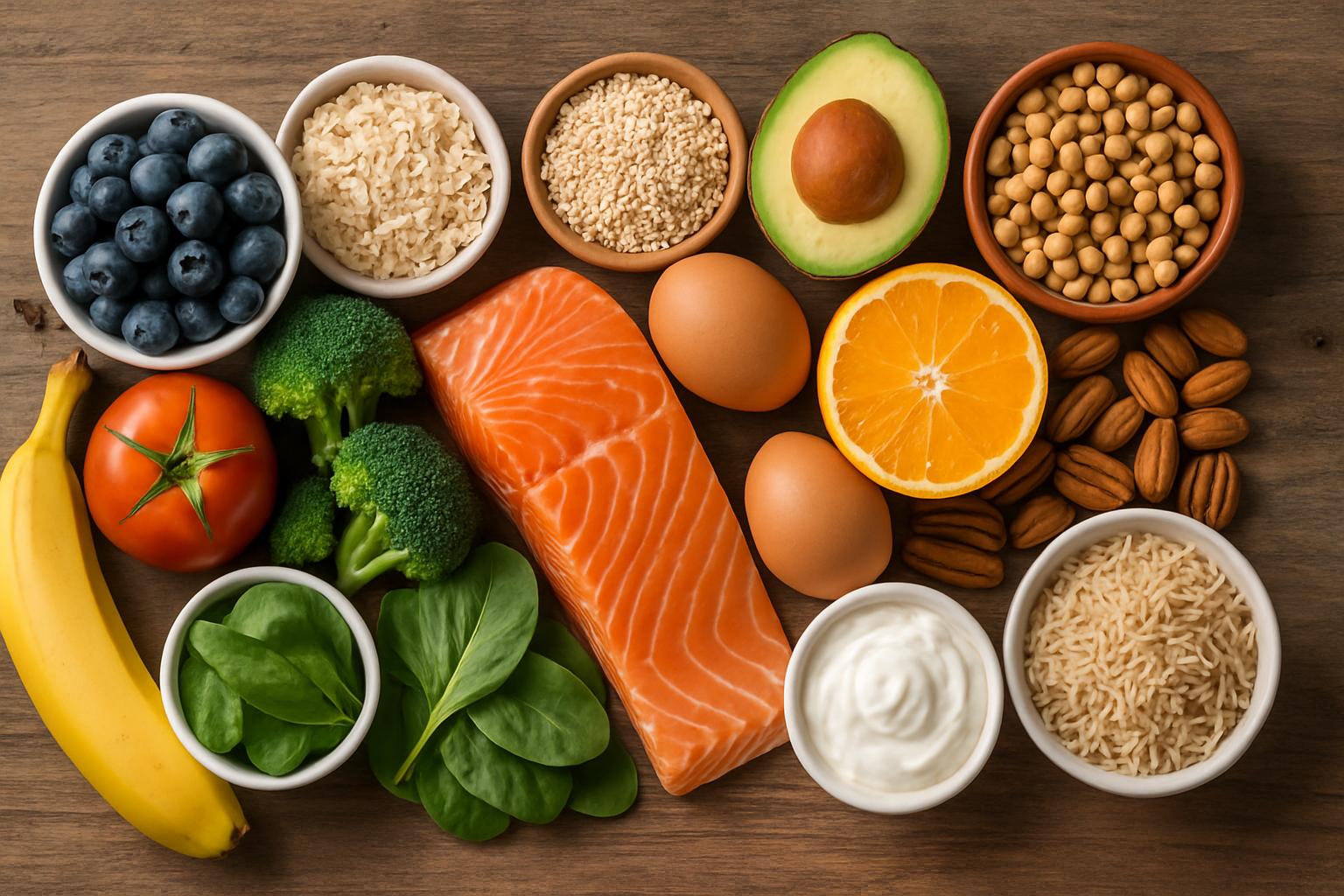What you eat doesn’t just impact your physical health — it has a direct and measurable effect on your mental state and energy. If you’ve ever felt foggy, tired, or irritable after a heavy meal, or energized and focused after something nourishing, you’ve already experienced the power of food on your mind and body.
In this article, we’ll explore how nutrition influences mood and energy, what foods support mental well-being, and how to make choices that help you feel better every day.
The Gut-Brain Connection
Your brain and gut are closely linked through the gut-brain axis, a communication system that includes nerves, hormones, and neurotransmitters. Your gut houses trillions of bacteria — known as the gut microbiome — which play a major role in mood, behavior, and energy regulation.
An imbalanced microbiome can contribute to:
- Anxiety and depression
- Fatigue and low motivation
- Digestive issues
- Brain fog
Eating the right foods can nourish your gut and positively influence how you feel.
Blood Sugar and Mood Swings
When your blood sugar spikes rapidly (often from eating refined carbohydrates or sugary snacks), it gives you a temporary energy boost — followed by a crash that can leave you feeling:
- Irritable
- Tired
- Anxious
- Unable to concentrate
Keeping your blood sugar stable is essential for mood balance. To do this:
- Choose complex carbs (oats, brown rice, sweet potatoes)
- Pair carbs with protein and healthy fats
- Avoid skipping meals, especially breakfast
Nutrients That Support Mood and Energy
Certain nutrients have been shown to have a significant impact on emotional well-being and mental performance.
1. Omega-3 Fatty Acids
Found in: fatty fish (salmon, sardines), walnuts, flaxseeds
Benefits: reduces inflammation, supports brain function, may ease symptoms of depression
2. Magnesium
Found in: leafy greens, almonds, pumpkin seeds, dark chocolate
Benefits: helps regulate stress response, improves sleep, reduces anxiety
3. Vitamin B12 and Folate
Found in: eggs, legumes, leafy greens, fortified cereals
Benefits: involved in serotonin production, supports nerve health
4. Vitamin D
Found in: sunlight, eggs, fortified dairy, fatty fish
Benefits: boosts mood, supports immune and brain function
5. Tryptophan
Found in: turkey, oats, bananas, cheese, seeds
Benefits: precursor to serotonin — helps with mood regulation and sleep
Best Foods for Stable Energy and Good Mood
These whole foods are excellent choices for both mental clarity and physical energy:
- Whole grains (brown rice, quinoa): steady energy release
- Leafy greens (spinach, kale): rich in brain-supporting nutrients
- Berries (blueberries, strawberries): antioxidants for brain protection
- Nuts and seeds: good fats and minerals like magnesium and zinc
- Greek yogurt: probiotics for gut health
- Bananas: natural sugars + fiber = sustained energy
- Green tea: gentle caffeine + theanine = focus without jitters
Foods That Drain Your Energy and Mood
Some foods may feel comforting in the short term but can contribute to energy slumps and emotional crashes.
Try to limit:
- Sugary snacks and drinks: cause energy spikes and drops
- Processed foods: often low in nutrients, high in unhealthy fats
- Refined carbs: white bread, pastries, pasta without fiber
- Excess caffeine: overstimulates, can increase anxiety
- Alcohol: affects sleep quality and dehydrates
Hydration Also Matters
Dehydration can mimic fatigue, mood swings, and lack of focus. Make sure to:
- Start your day with water
- Drink consistently throughout the day
- Include hydrating foods (cucumber, watermelon, oranges)
Aim for clear or pale-yellow urine as a good sign of hydration.
Simple Daily Nutrition Habits for Better Mood
- Eat regularly: don’t skip meals — it destabilizes blood sugar
- Balance your plate: aim for carbs + protein + fat + fiber
- Batch prep healthy meals or snacks to avoid impulsive eating
- Snack smart: almonds, fruit, hard-boiled eggs, hummus and carrots
- Limit artificial sweeteners and food additives, which may disrupt gut health
Listen to Your Body
Everyone responds differently to food. Pay attention to how you feel physically and emotionally after meals:
- Do you feel sluggish or energized?
- Do certain foods cause digestive issues?
- How do your mood and focus change?
Journaling your meals and moods for a few days can uncover helpful patterns.
Eat Better to Feel Better
The food you eat is more than fuel — it’s information for your brain and emotions. By choosing nourishing, whole foods and avoiding blood sugar traps, you can take control of your mood, sharpen your focus, and boost your energy throughout the day.
Small changes add up. Start with one nutrient-rich meal, hydrate consistently, and build from there. Your mind and body will thank you with greater clarity, calm, and vitality.
